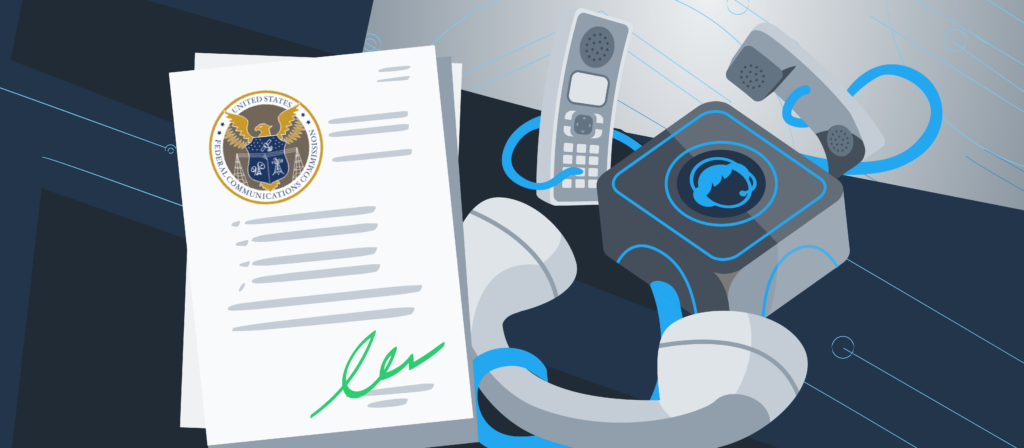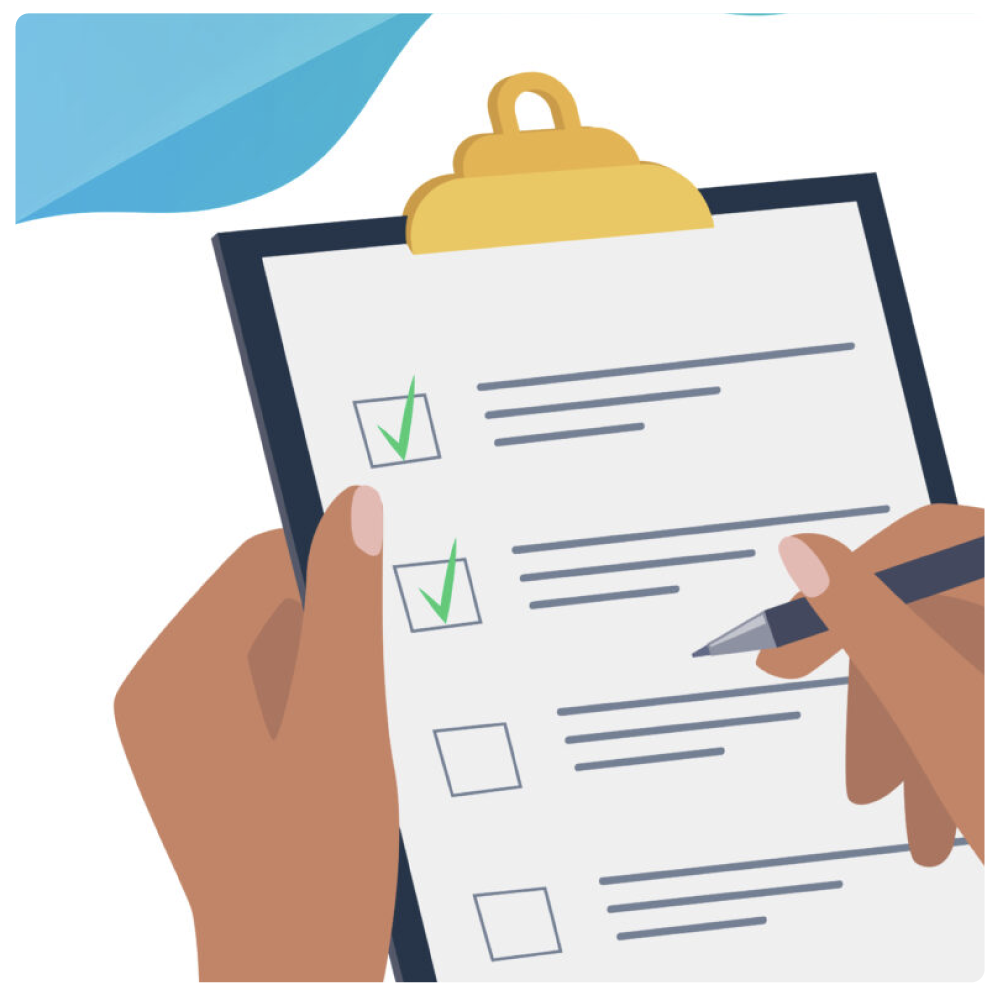A complete guide to TCPA autodialer rules

Diving into the world of telemarketing and customer outreach, it’s vital to understand the legal landscape, especially the Telephone Consumer Protection Act (TCPA).
This guide breaks down what counts as an autodialer under the TCPA, the FCC’s official TCPA autodialer definition, and the key rules you need to follow. Whether you’re running a telemarketing company or outsourcing these tasks, staying compliant with TCPA autodialer rules is crucial to avoid hefty fines and keep your operations running smoothly.
Let’s walk through these important details together and see how tools like TrustedForm can support your compliance efforts and help your business thrive.
What is an autodialer under the TCPA?
Under the TCPA, an autodialer, officially referred to as an Automatic Telephone Dialing System (ATDS), is defined as equipment that has the capacity to:
- Store or produce telephone numbers using a random or sequential number generator.
- Automatically dial those numbers.
This definition has been subject to legal interpretation and court rulings, most notably in Facebook, Inc. v. Duguid (2021), where the U.S. Supreme Court narrowed the definition of an autodialer. The Court ruled that an autodialer must use a random or sequential number generator to either store or produce numbers. This means that systems that simply dial from a stored list (like most modern dialing systems) do not necessarily qualify as autodialers under the TCPA.
The FCC’s TCPA autodialer definition
The FCC’s TCPA autodialer definition has sparked a lot of debate. At first, the FCC cast a wide net, classifying any device capable of automatic dialing as an autodialer. This meant that a lot of everyday business tools were included in that category.
However, recent court rulings have shifted the FCC’s position. Now, the focus is on what the equipment can do right now. This means a system has to actually have the ability to dial numbers automatically, not just the potential to be changed to do so.
The FCC’s definition isn’t set in stone; it evolves with technology. As new tools and methods come into play, the FCC revises its guidelines to keep them current and effective. This way, businesses can stay on the right side of the rules as they embrace the latest innovations.
To stay in line with the rules, it’s important for businesses to keep an eye on their dialing systems. If your system can store or produce numbers and dial them automatically, it’s considered an autodialer under TCPA guidelines. Getting some advice from legal experts can really help clear things up and keep you protected.
Key TCPA autodialer rules to know
The TCPA imposes strict rules on the use of autodialers when making calls or sending texts. Here’s a breakdown of the key TCPA autodialer rules:
Restrictions on autodialed calls and texts
The TCPA places restrictions based on who is being contacted and how.
Calls and texts to cell phones:
- For marketing calls or texts, you must have prior express written consent (PEWC) from the recipient.
- For informational or transactional calls (e.g., appointment reminders, fraud alerts, delivery notices, etc.) you may be able to rely on prior express invitation or permission (PEIP).
For more information about the different types of consent, check out this guide.
Calls to landlines:
- May be allowed to call without consent for non-marketing calls. But remember to check if the number is on the National Do Not Call (DNC), State DNC, or internal DNC lists.
- Prohibited for marketing calls unless there’s prior express written consent (PEWC).
Calls to emergency lines, hospitals, or similar services:
- Completely prohibited using an autodialer, regardless of consent.
Universal revocation of consent
- Consumers must be allowed to opt out at any time, using any reasonable means (e.g., replying “STOP” or any other similar word to a text).
- Once a consumer submits an opt-out request, they need to be promptly opted out of all calls and texts.
- Marketers are allowed to send one text message after the revocation request has been submitted to clarify the reason behind the request, given the text does not include any marketing or promotional content.
- Starting April 11, 2025, marketers will be required to respect opt-out requests within 10 business days.
Caller ID and identification rules
- Callers must display their phone number and name on Caller ID.
- Calls must identify the business, provide a call-back number, and explain the purpose.
Time restrictions
- Permitted calling hours are between 8 AM and 9 PM in the recipient’s local time.
- Calls outside these hours violate TCPA rules.
- Be aware that many states have their own calling hours, which may be different from national ones.
National Do Not Call (DNC) rules
If a consumer is on the National Do Not Call (DNC) Registry, telemarketing calls (even those using an autodialer) are prohibited unless:
- The consumer has given explicit consent.
- There is an established business relationship (EBR) within the past 18 months.
Penalties for TCPA violations
TCPA autodialer violations can result in severe penalties:
- $500 per violation (per call or text).
- Up to $1,500 per willful violation (if the company knowingly violated the TCPA).
- Class action lawsuits can significantly increase financial exposure.
Exemptions
There are a few TCPA exemptions to be aware of:
- Government and emergency-related calls are generally exempt.
- Informational calls (e.g., school closings, fraud alerts) may be allowed without written consent.
- Manually dialed calls are not subject to autodialer restrictions.
Protecting your business with TrustedForm
TrustedForm is a robust solution that can guide you through the intricate landscape of TCPA compliance. By offering clear evidence of customer consent, TrustedForm helps ensure you have the essential records to prove compliance if you ever face an audit or legal scrutiny.
TrustedForm is the ultimate compliance solution for documenting TCPA consent on digital lead capture forms, allowing you to:
- Document lead events in the form of a TrustedForm Certificate that can be used as evidence to prove how leads were generated.
- Store certificates and make them readily available during the statute of limitations for marketing related laws.
- Automatically check for prior express written consent and one-to-one consent to enable use of regulated technology and otherwise restricted actions.
Using TrustedForm can really streamline the process of getting and managing consumer consent for you. With its easy-to-use interface and strong features, tracking and documenting consent becomes a breeze, cutting down the risk of any mishaps. This not only saves your business time and resources but also lets you focus more on growing and providing top-notch customer service.
Sticking to TCPA autodialer rules does more than just shield your business from legal tangles; it also boosts the trust your customers have in you. When you respect their choices and keep their privacy in mind, you’re not just following the rules – you’re building a better brand. TrustedForm is here to help you do just that, making sure your practices are clear and by the book.
Conclusion
The TCPA autodialer rules are a big deal for any business that uses or outsources autodialer systems. Getting a handle on what they mean and making sure you follow the rules can save you from hefty legal fees and keep your business’s good name intact.
Staying informed is key, and regularly checking in on the FCC’s guidelines and the latest court decisions is a must. It helps you keep your business in line as both technology and regulations continue to change. By staying up-to-date, you’re taking the first step in keeping everything compliant.
At the end of the day, sticking to TCPA autodialer rules is about more than just sidestepping fines. It’s about earning your customers’ trust and making sure their privacy and preferences are top of mind. When you play by the rules, you build a business that people can really stand behind.







